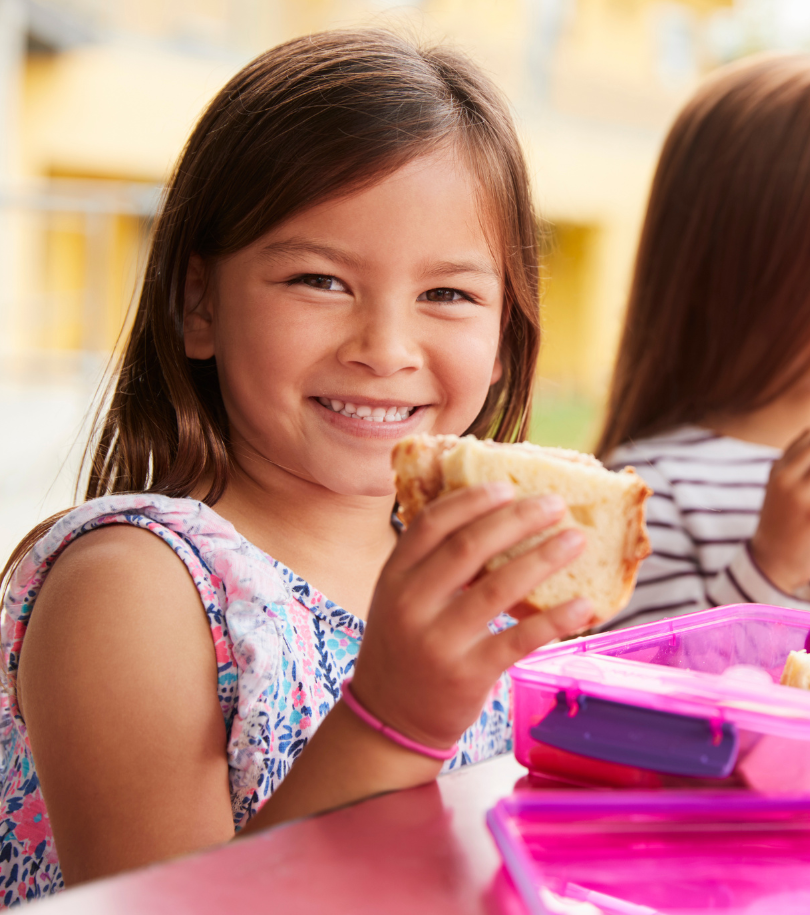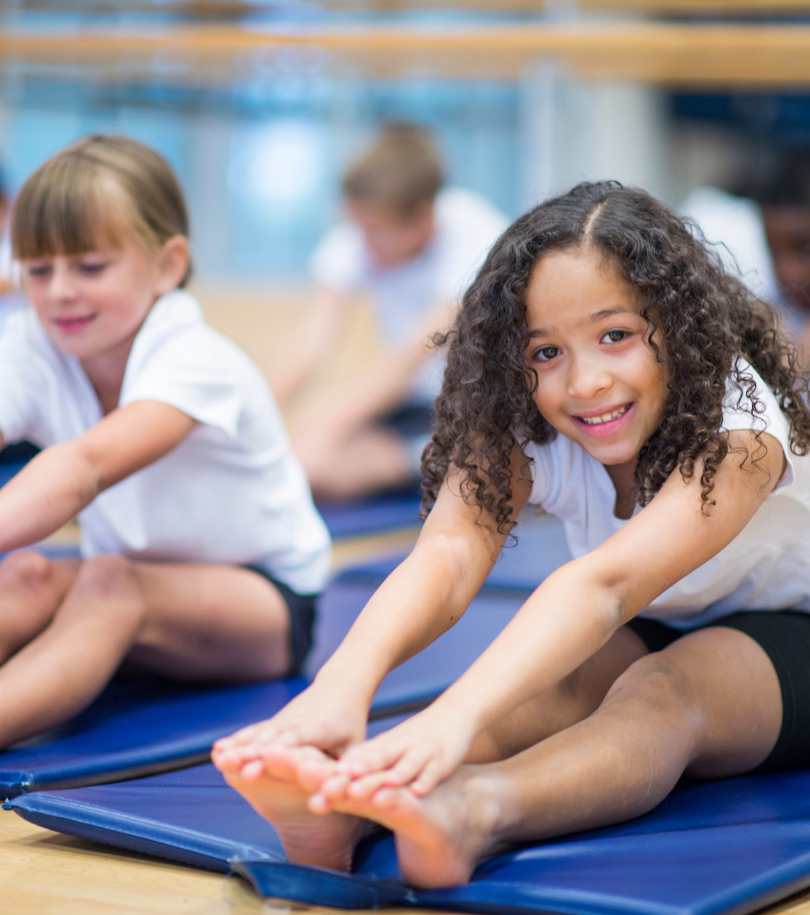- Home
- Health Topics
- School Health
- Educator Resources
Educator Resources
Healthy children are more prepared to learn. Quality instruction, both in the classroom and in other less formal settings, plays a major part in developing a health-promoting school.
Below, you will find credible teaching resources for elementary and secondary school educators about public health topics.

Schools play an important role in helping students access and learn about food and nutrition in a positive way. Creating a positive eating environment and providing hands-on opportunities to learn about, see, smell, touch, grow, and cook a variety of foods can help students build the foundation for a healthy relationship with food.
Nutrition programs and resources are available to elementary and secondary schools in Haldimand and Norfolk. These programs and resources are intended to help schools create supportive eating environments and build food literacy skills.
Curriculum Supports For Nutrition
- Bright Bites Curriculum Supports: Grade-specific curriculum supports for grades K-8
- Food Is Science: Tools and lesson plans to help teach grades 3-9 about food systems and incorporate food literacy into Ontario’s Science and Technology Curriculum.
- Lesson Plans by Growing Chefs! Ontario: Lesson plans designed to teach grades 1-8 about food exploration, food systems, expanding their food comfort zones, and the value of food beyond nutrition
- Teach Food First: Lesson plans and activities for grades K-8 based on food exploration and teaching Canada’s Food Guide.
- You’re the Chef: You’re the Chef is a food literacy program designed to help Grades 5-8 students develop food and nutrition knowledge, food skills, and the confidence necessary to plan and prepare meals and snacks.
- Registered dietitians from HNHU train and provide resources to teachers and community volunteers so that they can run the program at their respective schools and community settings.
- AgScape: Resources to teach about food and food systems for grades 3-12
-
Teaching Canada’s Food Guide — Government of Canada
Other Nutrition Resources for Educators
- School Food and Beverage Policy Includes information about the School Food and Beverage policy, elementary and secondary teacher resource guides, and FAQs about the policy
- ODPH School Nutrition Resources: Resources to support building a supportive nutrition environment and nurturing healthy eaters
- Canada's Food Guide Toolkit for Educators Activities to guide children in learning basic food skills and develop healthy eating patterns while understanding Canada’s Food Guide
- Media Smarts: Lesson plans and activities on food marketing, body image, cyberbullying and other digital and media literacy topics for K-12
- Food Allergy Canada: Learn how you can make your school more allergy-aware, resources for grades K-8 including posters, tips and more
- Hands on Food: Resource for teaching hands-on cooking with students, learning about cooking, growing and preserving foods for grades 4-7
Nutrition Resources For Youth
- Have nutrition questions? Call 8-1-1 or visit Health Connect Ontario | Health Connect Ontario to contact a registered dietitian for free.

Research shows that daily physical activity improves concentration and academic achievement in addition to physical health benefits. Schools are ideal places to promote health by creating daily opportunities to increase physical activity and reduce sedentary behaviour.
School-based physical activity initiatives can reach every student regardless of age, ability, gender, culture, and socio-economic background. Both structured and unstructured physical activity are important and can be obtained through classes, sports, intramurals, and dance, as well as playtime and walking or biking for transportation.
Curriculum Supports For Physical Activity
- OPHEA: H&PE Curriculum Resources Curriculum-related resources for Grades 1 to 8 are available to subscribing school boards through a password-protected website.
- Move Think Learn | PHE Canada supports physical activity leaders and teachers working with children and youth in kindergarten to Grade 9 to develop their physical literacy – knowledge, confidence, and competence – through unique, inclusive, and fun activities. – *To access PHE Canada resources, you must register for a free PHE account at https://phecanada.ca/user/register/free
- Passport for Life | PHE Canada Free online physical literacy assessment program for teachers assessing four primary components of physical literacy
- Guide to Ride | PHE Canada Free resource for teachers or after-school leaders of children in grades 4, 5 or 6 to promote safe cycling.
- PlaySport Online is an activity-based resource designed to maximize the fun, inclusion, participation, and success of everyone when building their physical literacy.
- Evergreen’s Outdoor Classroom Resources Toolkits, activity books, and curriculum-connected lesson plans to support children and youth engaging with the natural world.
Other Physical Activity Resources for Educators
- Playground Activity Leaders in Schools (PALS) is A peer-led playground leadership program that encourages all children to participate in recess games and activities regardless of gender, age, or ability.
- Dedicated school staff are trained to supervise the program, and junior and intermediate students are trained to act as playground activity leaders for younger students. HNHU’s School Health team offers PALS training for adult facilitators (school staff and/or volunteers) and can support your school with student leader training.
- For more support or information, please contact your assigned School Health Nurse or email [email protected].
- Ontario Active School Travel Evidence-based resources to promote active school transport, including: walking, cycling and other forms of active and sustainable transportation.
- At My Best Challenge The AMB Challenge occurs every school year. During the Challenge, schools and/or classes can complete challenges each week to support students in learning about their health and well-being. At the end of the Challenge, schools have the chance to win grand prizes.

Teachers play an important role in educating students about substance use, addictions and related behaviours. Prevention messages are most effective when shared with students early and throughout their school years.
As caring adults, it is important for us to be informed on the risks and consequences of substance use. It is important to be able to speak to youth about their risk behaviours and offer them trustworthy information so that they can make the safe choice.
Curriculum Supports For Substance Use
- Not an Experiment Provides lesson plans, activities, games, announcements and more on vaping. Includes quit plan for students. For Grades 5- 8.
- Vibed Youth-oriented vaping education workshop designed to empower young individuals with knowledge and the tools to make healthier decisions in the future. Ready-to-use slides, materials, script, and interactive activities are all provided for educators. For youth 13-18 years.
- Media Smarts provides lesson plans, tip sheets, and other resources on various media topics (such as alcohol and tobacco marketing).
- Health Canada Experiences Variety of in-class resources, activities, free online games and learning modules aimed at increasing youth engagement and awareness on current health topics impacting children in grades 1-5, teens (grades 7-12) and young adults, including opioids and cannabis.
Other Substance Use Resources for Educators
- OPHEA Vaping Education Resources Resources have been developed to provide educators with capacity building tools and conversation starter prompts to support students in developing the knowledge and skills needed to make informed decisions to support their health and well-being.
- School Mental Health Ontario: Substance Use and Addiction Resource for educators that outlines the continuum of substance use and includes resources on cannabis, prescription opioids, and vaping.
- Talking with Teenagers about Drugs Government of Canada webpage that includes tips for talking with teens about drugs, information about cannabis, prescription drugs and other substances, and links to additional resources.
- Talking with your Teen about vaping: A tip sheet for parents Government of Canada webpage with provides information and tips for talking with teens about vaping. Links to additional resources available.
- An Indigenous Perspective: Cannabis and Vaping (Ontario Native Education Counselling Association) Toolkit for educators designed to provide culturally appropriate resources and training related to non-medical cannabis use and vaping. This resource was created in collaboration with elders, youth advisors and community members.
- Talking Pot with Youth: A Cannabis Communication Guide for Youth Allies Helps adults understand the youth perspective and practical ways to have a supportive conversation about cannabis with youth. For grades 9-12.
Substance Use Resources For Youth
- Quash App free smoking and vaping cessation program for youth and emerging adults (ages 14-30) that enables users to build a custom plan for quitting.

Mental health is as crucial as physical health, each influencing the other. Promoting and protecting the mental health of children and youth is essential for them to reach developmental milestones, form healthy relationships, and succeed academically. By fostering a healthy sense of self and positive mental health in youth, we pave the way for resilient adults.
Curriculum Supports For Mental Health
- School Mental Health Ontario Wayfinder: Provides a digital guide of lessons and activities for students in Kindergarten to grade 12. Consists of core mental health literacy lessons linked to the HPE curriculum .
- Mental Health in May: Includes four weeks of easy activities for elementary teachers to bring mental health alive within their classrooms. Developed by Southwestern Public Health Unit and Middlesex London Health Unit.
- Grab and Go Tool by School Mental Health Ontario: Collection of learning activities as part of everyday Mental Health practices for school students.
- Student Mental Health Action Kit: Provides practical tools and learning opportunities to support student mental health and educator well-being in both virtual and in-person classrooms
- Anxiety Canada Educator Resources: Contains information about anxiety, with videos and resources for children and youth.
Other Mental Health Resources for Educators
- School Mental Health Ontario’s Mental Health Literacy and Anxiety Management Social Media Bundles Youth-friendly materials to put in the classroom to raise awareness about anxiety and coping .
- MH LIT: Student Mental Health in Action: It’s a series of four lessons to support knowledge development about mental health and help-seeking skills for secondary students.
- Heart- Mind Online: Provides evidence-informed knowledge and resources to educators to support students' emotional and social learning needs.

It is essential to teach students how to be actively involved in their own and others' safety. By teaching safety rules and practices, students can develop the skills to recognize, assess, and manage risk in their environment.
Curriculum Supports For Safety and Injury Prevention
- Road Smarts 4 Kids Activities, challenges, downloadable lesson plans and presentations for elementary students on important road safety concepts, skills and awareness.
- Brain Waves Teach students in Grades 4-6 about the structure and function of the nervous system through experiments and interactive lessons, and about the importance of protecting the brain and spinal cord from injury. Activity booklets and slide decks available to download and use for free.
- Handwashing and Germs Teaching Tool (Kindergarten and Grade 1) Provides background information needed to prepare and teach JK – Gr. 1 students about how germs are spread and proper handwashing techniques.
Other Personal Safety and Injury Prevention Resources for Educators
- OPHEA The Ontario Physical Education Safety Guidelines (K–Grade 12) provide the minimum standards for risk management practice for schools. They are available in English and French and are updated annually. Check for the most recent version.
- Concussion Guide for Teachers A concise guide that explains signs and symptoms of concussions and information about return to school and activities following a concussion.
- Rowan’s Law Day Toolkit for Schools This has been developed to help schools and classrooms recognize Rowan's Law Day and encourage students to speak up about concussions.
- Anaphylaxis in School Online Course Designed for teachers, administrators and other school personnel. This online course will help you understand the basics of anaphylaxis, ways to reduce risks in a school setting, and the recommended emergency treatment.
- Become a SunSense School Offered by the Canadian Cancer Society. By registering for the program your school can access education tools and resources, such as lesson plans, curriculum guide, staff training, posters, etc.
- Teaching Resources to Prevent Identity-Based Bullying Designed to support educators as they learn more about identity-based bullying and to help them have conversations with their students about identity-based bullying.

Schools are an ideal setting for developing healthy relationships and modelling health behaviours. Furthermore, educators play a valuable role in supporting healthy growth and development in children and adolescents.
Sexual health education is the process of equipping individuals with the information, motivation, and behavioural skills needed to enhance sexual health and avoid negative sexual health outcomes. Students learn about health concepts in the classroom while developing critical thinking and decision-making skills. We, as your public health partners, can assist you in incorporating the presentations below into your healthy growth and development school action plan.
Curriculum Supports For Human Development and Sexual Health
The following teaching tools were developed in accordance with the curriculum expectations outlined in the Ontario Ministry of Education's Health and Physical Education curriculum (2019) to support teachers in creating comprehensive lesson plans to cover health-related content in the classroom. The resources are guidelines and suggestions for teachers to use and are considered appropriate for their respective grades. For additional assistance, don't hesitate to contact the school health team at [email protected] or 519-426-6170 ext. 3283, Monday through Friday, between 8:30 a.m. and 4:30 p.m.
Presentations — PDFs
- Grades 7/8 - Healthy Relationships Pt. 1
- Grades 7/8 - Healthy Relationships Pt. 2 with focus on social media
- Grades 7-12 - Sexually Transmitted Bloodborne Infections
- Grade 8 Decisions about Sexual Activity Contraception
-
If you would like a PowerPoint version of any of the above presentations, please email [email protected].
Other Healthy Growth and Development Resources for Educators
- Always Changing & Growing Up (OPHEA) Free resources to download and support teaching adolescent growth and development, personal hygiene, and healthy, active living to Grades 5/6 and 7/8.
- Teaching Sexual Health provides detailed information to help educators plan healthy growth and development lessons. Topics covered include sex and reproduction, consent, contraception, and sexually transmitted bloodborne infections. Educators are given a variety of options to choose from, including videos, PowerPoint presentations, and interactive group activities.
- SHORE Centre provides online and in-person sexual health education workshops designed to address a variety of sexual health topics. The workshops are customizable to classroom grade and size. Presentations align with the Ontario Curriculum for Health and Physical Education. For Grades 4-12.
- SexualHealthOntario provides information about Information about healthy relationships, sexual health, sexually transmitted infections (STIs), birth control, and more. Includes a live chat to answer questions. Resource 1
- SexAndU provides accurate, credible, and up-to-date information and education on topics related to sexual and reproductive health.
